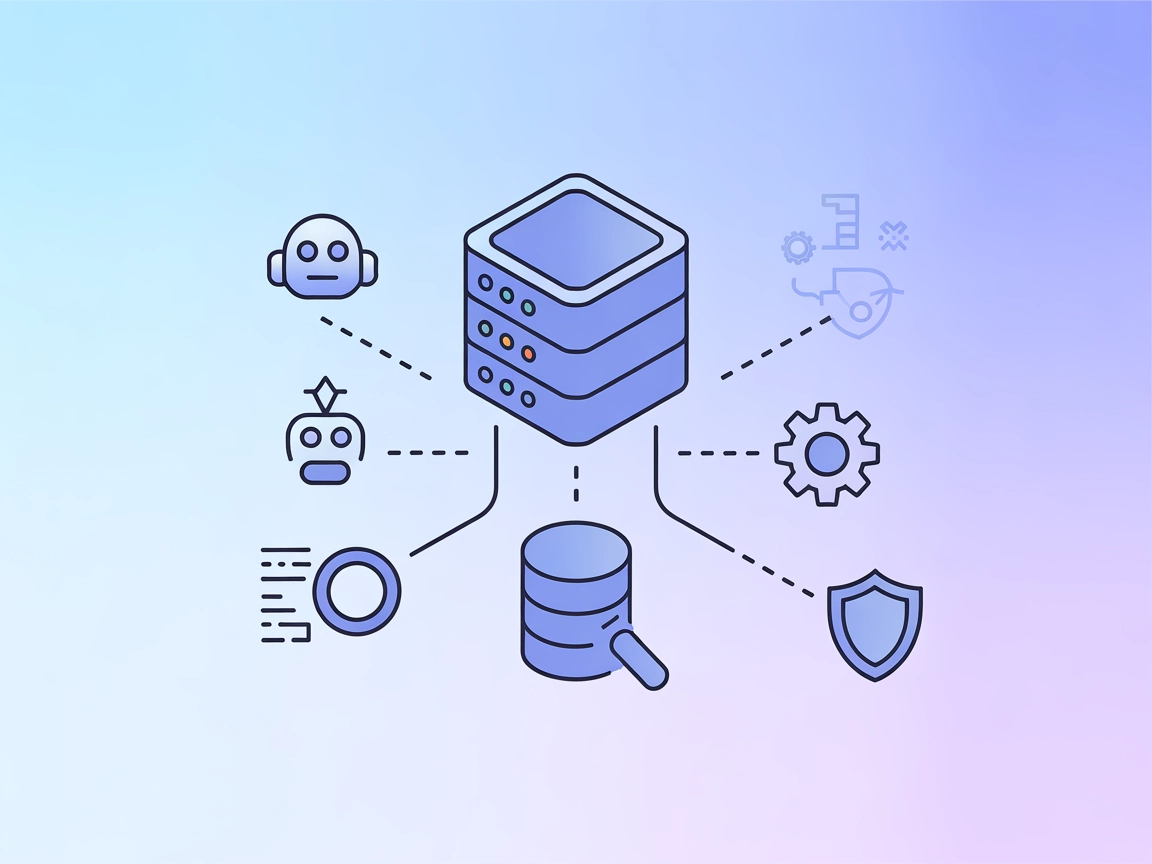What does “Typesense” MCP Server do?
The Typesense MCP Server is an implementation of the Model Context Protocol (MCP) that connects AI models and assistants to Typesense, an open-source search engine. By acting as an intermediary, it allows AI agents to discover, search, and analyze data within Typesense collections. This integration empowers development workflows by enabling tasks such as querying databases, retrieving documents, analyzing schema, and accessing collection statistics—directly via LLM-powered tools. Developers can use the Typesense MCP Server to enrich AI assistant capabilities with real-time, context-aware access to structured data, facilitating enhanced search, automation, and analytics.
List of Prompts
- analyze_collection
Analyze the structure and contents of a specified Typesense collection to surface schema and document insights.
List of Resources
- List and access collections via
typesense://URIs
Exposes Typesense collections as resources accessible through standardized URIs. - Collection name, description, and document count
Each resource provides metadata such as the name, a description, and the total number of documents. - JSON mime type for schema access
Resource schemas can be accessed in JSON format for easy integration and inspection.
List of Tools
- typesense_query
Search for documents in Typesense collections with filtering, field selection, sorting, and result limits. Returns matching documents with relevance scores. - typesense_get_document
Retrieve a specific document by its ID from a Typesense collection. Returns the complete document data. - typesense_collection_stats
Get statistics and metadata about a Typesense collection, including document count and schema information.
Use Cases of this MCP Server
- Database Search and Analytics
Seamlessly search and analyze large datasets within Typesense collections, enabling LLMs to answer questions and surface insights from structured data. - Automated Document Retrieval
Retrieve specific documents or entries by ID to power document Q&A, summarization, or verification workflows. - Collection Exploration and Analysis
Analyze collection structures, surface schema data, and understand data distributions for improved dataset understanding. - Metadata and Schema Access
Programmatically access collection metadata and schema—useful for dynamic UI generation or data validation tasks. - LLM-Driven Filtering and Sorting
Empower AI assistants to perform complex, user-driven queries with advanced filters and sort operations.
How to set it up
Windsurf
- Ensure you have Node.js installed and access to your Windsurf MCP configuration.
- Open your
.windrcor relevant configuration file. - Add the Typesense MCP Server using the following JSON snippet:
{ "mcpServers": { "typesense": { "command": "npx", "args": ["@typesense/mcp-server@latest"], "env": { "TYPESENSE_API_KEY": "your-typesense-api-key" } } } } - Save the configuration file and restart Windsurf.
- Verify the setup by checking if the Typesense MCP server is listed and accessible.
Claude
- Install Node.js and acquire your Typesense API key.
- Open the Claude system configuration panel.
- Insert the following under MCP servers:
{ "mcpServers": { "typesense": { "command": "npx", "args": ["@typesense/mcp-server@latest"], "env": { "TYPESENSE_API_KEY": "your-typesense-api-key" } } } } - Save changes and restart Claude.
- Test by running a Typesense query from the Claude interface.
Cursor
- Make sure Node.js is available on your system.
- Open Cursor’s MCP configuration file.
- Add the Typesense MCP Server entry:
{ "mcpServers": { "typesense": { "command": "npx", "args": ["@typesense/mcp-server@latest"], "env": { "TYPESENSE_API_KEY": "your-typesense-api-key" } } } } - Save and restart Cursor.
- Confirm the MCP server is operational by listing available tools.
Cline
- Install Node.js and get your Typesense API key.
- Locate Cline’s MCP configuration file.
- Insert the following configuration:
{ "mcpServers": { "typesense": { "command": "npx", "args": ["@typesense/mcp-server@latest"], "env": { "TYPESENSE_API_KEY": "your-typesense-api-key" } } } } - Save the configuration and restart Cline.
- Verify setup by running a sample Typesense query.
Securing API Keys Using Environment Variables
Use the env field in your configuration to securely pass API keys, e.g.:
{
"mcpServers": {
"typesense": {
"command": "npx",
"args": ["@typesense/mcp-server@latest"],
"env": {
"TYPESENSE_API_KEY": "your-typesense-api-key"
},
"inputs": {}
}
}
}
How to use this MCP inside flows
Using MCP in FlowHunt
To integrate MCP servers into your FlowHunt workflow, start by adding the MCP component to your flow and connecting it to your AI agent:

Click on the MCP component to open the configuration panel. In the system MCP configuration section, insert your MCP server details using this JSON format:
{
"typesense": {
"transport": "streamable_http",
"url": "https://yourmcpserver.example/pathtothemcp/url"
}
}
Once configured, the AI agent is now able to use this MCP as a tool with access to all its functions and capabilities. Remember to change “typesense” to whatever the actual name of your MCP server is and replace the URL with your own MCP server URL.
Overview
| Section | Availability | Details/Notes |
|---|---|---|
| Overview | ✅ | Overview and description present in README |
| List of Prompts | ✅ | “analyze_collection” |
| List of Resources | ✅ | Collections, schema, metadata, JSON mime |
| List of Tools | ✅ | typesense_query, typesense_get_document, collection_stats |
| Securing API Keys | ✅ | Instructions for env vars in setup |
| Sampling Support (less important in evaluation) | ⛔ | Not mentioned |
Our opinion
The Typesense MCP Server is well-documented with clear tool definitions, resource details, and setup instructions. It covers key MCP functionalities, though lacks mention of sampling or roots support. The project is open source (MIT) and has some community traction, making it a solid, functional MCP server.
MCP Score
| Has a LICENSE | ✅ (MIT) |
|---|---|
| Has at least one tool | ✅ |
| Number of Forks | 5 |
| Number of Stars | 9 |
Rating: 8/10 — The Typesense MCP Server provides robust MCP compliance, useful tools, and clear documentation. It loses some points for lack of explicit sampling/roots support and lower community adoption, but is otherwise exemplary for its category.
Frequently asked questions
- What is the Typesense MCP Server?
The Typesense MCP Server is an implementation of the Model Context Protocol (MCP) that connects AI assistants to Typesense, an open-source search engine. It enables AI agents to discover, search, and analyze Typesense collections for real-time, structured data access.
- What can the Typesense MCP Server do?
It exposes tools for searching documents, retrieving documents by ID, analyzing collection schema, and accessing collection statistics. This empowers AI workflows with advanced search, analytics, and data retrieval capabilities.
- How do I securely add my Typesense API key?
Always use the 'env' field in your MCP server configuration to store your API key. Never hard-code sensitive data in your source files. Refer to the example configurations for each client.
- Can I use Typesense MCP Server in FlowHunt flows?
Yes! Add the MCP component to your flow, configure the Typesense MCP server’s connection details, and your AI agent will be able to access all Typesense tools and resources within FlowHunt.
- What use cases does this enable?
You can empower AI with database search and analytics, automated document retrieval, collection structure analysis, metadata access, and advanced filtering/sorting on structured data collections.
Connect Typesense to FlowHunt
Supercharge your AI with instant, secure access to Typesense collections. Search, analyze, and retrieve documents directly inside FlowHunt.




